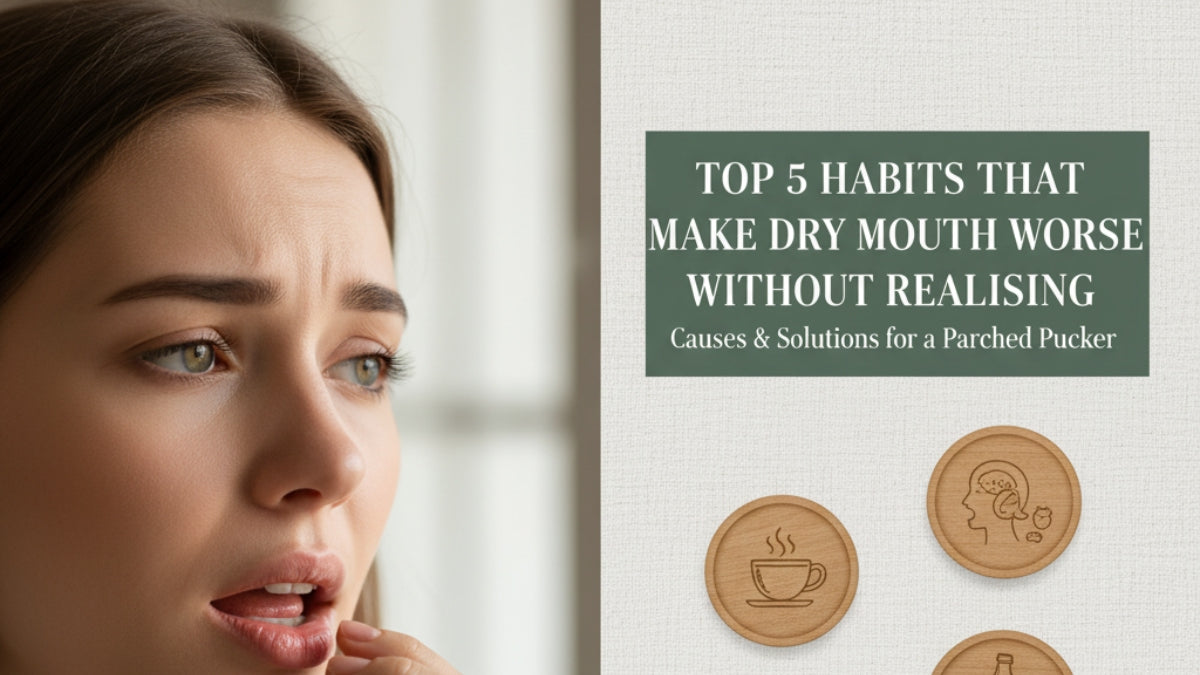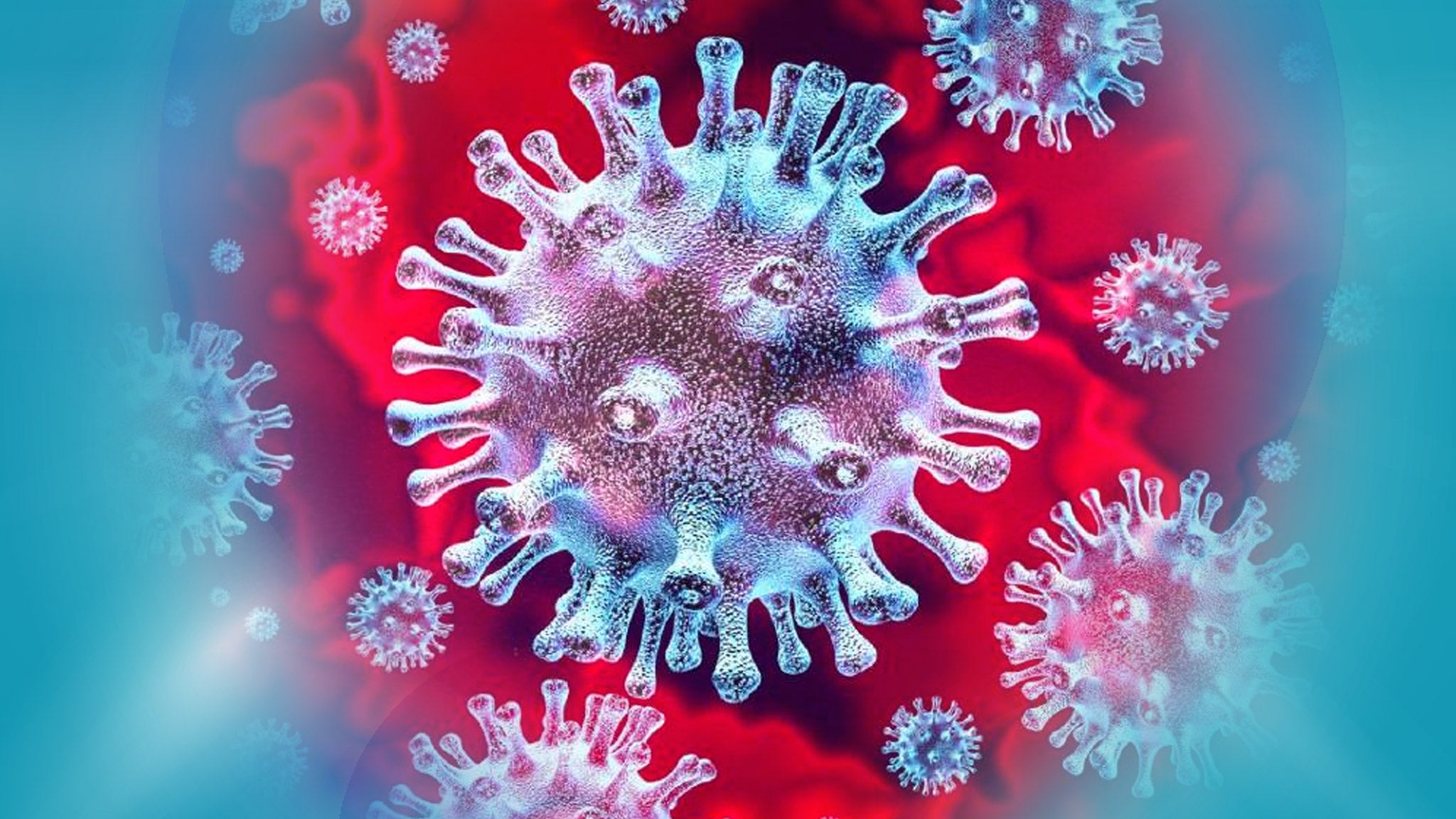Dry mouth is more than just an annoying sensation. It happens when your body isn’t producing enough saliva. Saliva plays a vital role in chewing, swallowing, protecting your teeth, and keeping your mouth clean.
Without it, you’re more likely to experience bad breath, tooth decay and even oral infections. What many people don’t realise is that everyday habits may be making dry mouth symptoms worse.
In this article, we’ll uncover the top 5 habits that aggravate dry mouth and show you how to avoid them so you can protect your oral health and feel more comfortable throughout the day.
What Causes Dry Mouth?
Before looking at habits, it helps to understand why dry mouth occurs. Common causes include certain medications, dehydration, underlying health conditions, and even something as simple as breathing through your mouth while sleeping.
In some cases, treatments like chemotherapy or radiation can also reduce saliva production, leading to persistent dryness.
Beyond medical reasons, everyday choices can make dry mouth worse. Drinking too much coffee or alcohol, smoking or not drinking enough water throughout the day can all contribute.
Understanding these causes is the first step to finding practical ways to keep your mouth comfortable and healthy.
5 Common Habits That Trigger Dry Mouth
Dry mouth isn’t always about medications or health issues. Sometimes, it’s the little things you do every day that make it worse. Let’s look at the most common ones and how to avoid them.
1. Not Drinking Enough Water
Dehydration is one of the biggest culprits behind dry mouth. Your body needs water to stay balanced, and saliva production depends on proper hydration. Without enough fluids, saliva flow decreases, leaving your mouth feeling dry, sticky and uncomfortable.
The problem is, busy schedules and long hours indoors often mean people forget to sip water regularly. If you find yourself dealing with frequent dry mouth, make it a habit to carry a water bottle and take small sips throughout the day.
This simple step helps keep your mouth moist and supports healthy saliva flow. Just remember to limit caffeinated and alcoholic drinks, as these can have a dehydrating effect and make symptoms worse.
2. Breathing Through Your Mouth
Another common trigger is mouth breathing. When you breathe through your mouth instead of your nose, airflow dries out saliva quickly, so your mouth becomes parched. This often happens when your nose is blocked from a cold, allergies or sinus issues.
Many people don’t even realise they breathe through their mouth, especially while sleeping. If you wake up with a sticky, dry mouth in the morning, mouth breathing may be to blame.
Using a humidifier at night, practising nose breathing during the day or addressing chronic congestion with a doctor can all help.
3. Using Too Much Mouthwash or the Wrong Kind
While mouthwash can freshen breath and fight bacteria, not all types are suitable if you have dry mouth.
Many formulas contain alcohol or harsh ingredients that reduce saliva and worsen dryness. Overusing mouthwash can have the same effect.
If you’re prone to dry mouth, choose an alcohol-free mouthwash or one made specifically to add moisture and protect your teeth. Your dentist may also recommend specialised dry mouth products that help soothe dryness while supporting oral health.
4. Poor Oral Hygiene
Neglecting proper oral care doesn’t directly cause dry mouth, but it can make the symptoms worse.
Without enough saliva, food particles and bacteria aren’t washed away effectively, creating the perfect conditions for bad breath, cavities and gum problems.
To protect your teeth and gums, make oral hygiene a daily priority:
-
Brush twice a day with a fluoride toothpaste, such as ClinPro Toothpaste, to strengthen enamel and fight cavities.
-
Floss daily with products, like Ruscello Dental Floss, to remove plaque and food trapped between teeth.
-
Clean your tongue gently with a tongue scraper or tools, such as Orabrush Tongue Cleaners, to reduce bacteria that cause bad breath.
5. Smoking and Chewing Tobacco
Finally, tobacco use is one of the most damaging habits for dry mouth. Smoking and chewing tobacco reduce saliva flow, damage salivary glands and increase the risk of gum disease, infections and even oral cancer.
Quitting tobacco isn’t easy, but it’s one of the best steps you can take for your mouth and overall health. With support from healthcare providers and quit-smoking resources, you can break the habit, and your mouth will thank you.
How to Manage Dry Mouth Better
Knowing the habits that trigger dry mouth is the first step to managing it. Try these simple tips to keep your mouth comfortable and healthy:
-
Drink plenty of water throughout the day to support saliva production.
-
Brush twice a day, floss daily and gently clean your tongue to reduce bacteria and plaque.
-
Both can dry out your mouth and make symptoms worse.
-
Alcohol-free mouthwashes or saliva-boosting sprays can help keep your mouth moist.
-
If dry mouth persists, talk to your dentist. They can identify underlying causes and recommend effective solutions.
Final Thoughts
Dry mouth can be uncomfortable, and everyday habits can make it worse without you even realizing it.
Keeping your mouth healthy and hydrated comes down to a few key practices: drinking enough water, breathing through your nose, using the right mouthwash, maintaining good oral hygiene and avoiding tobacco. These steps not only improve comfort but also help protect your teeth and gums.
For expert guidance and products designed to manage dry mouth, visit BreezeCare. Our range of oral care solutions and professional advice can help you take control of your oral health and keep your mouth feeling fresh and healthy. Don’t let dry mouth take over. Take charge of your oral care today.











